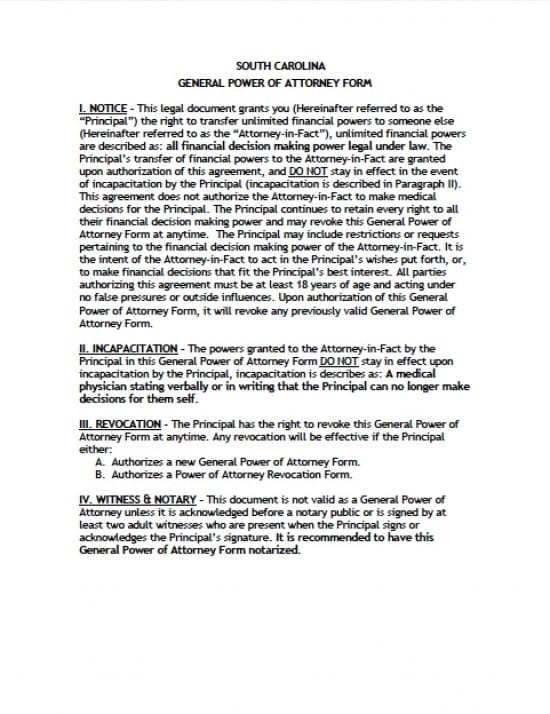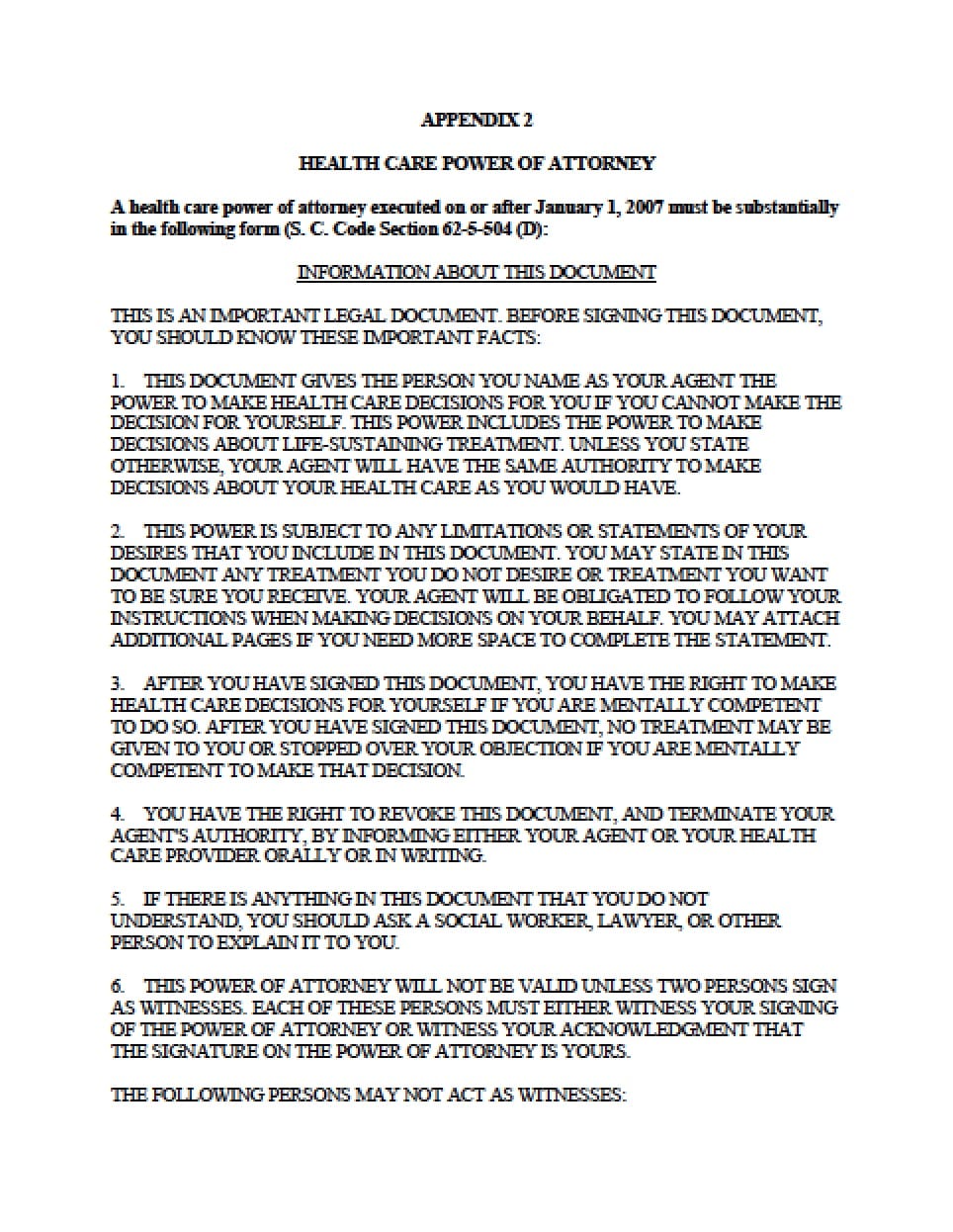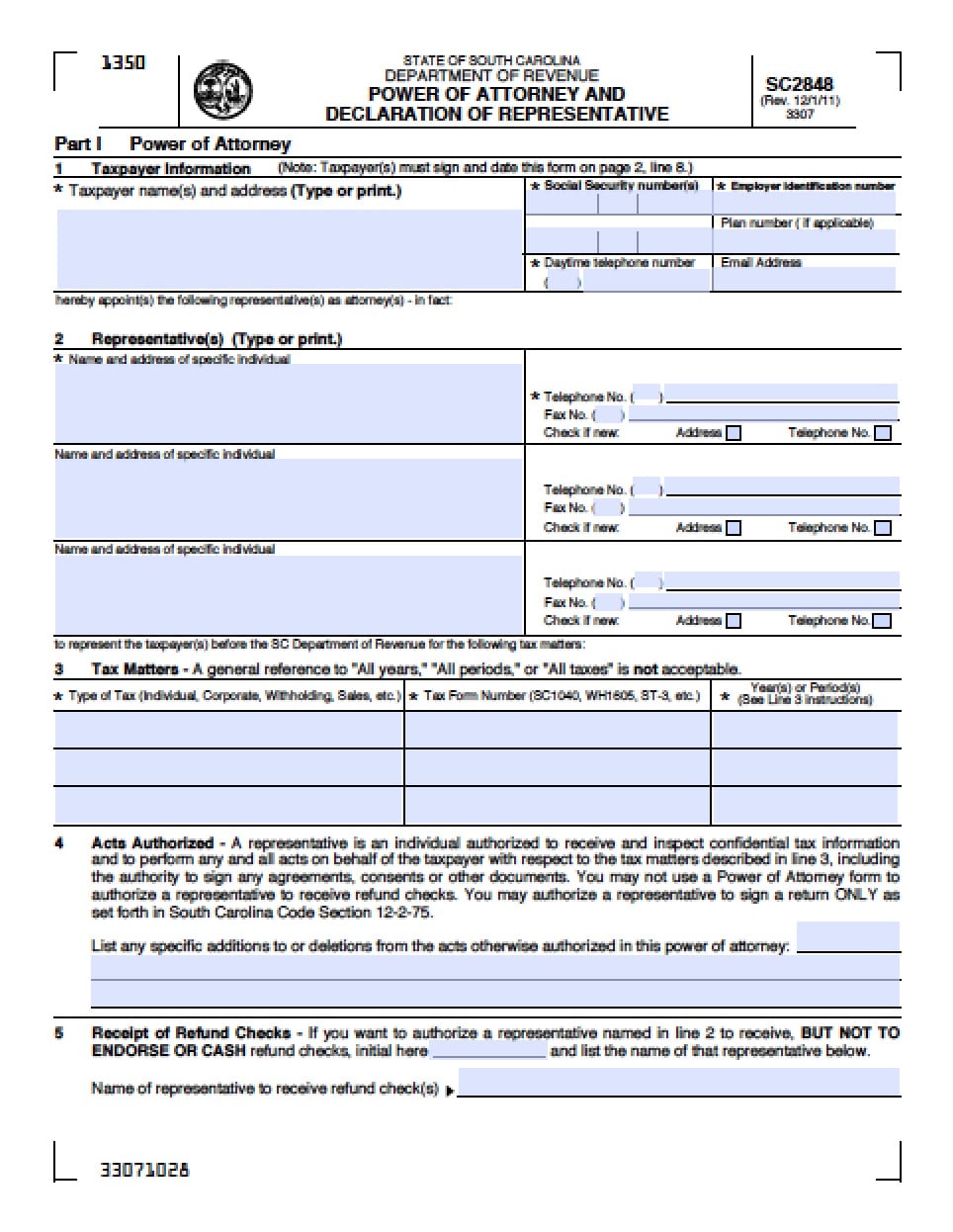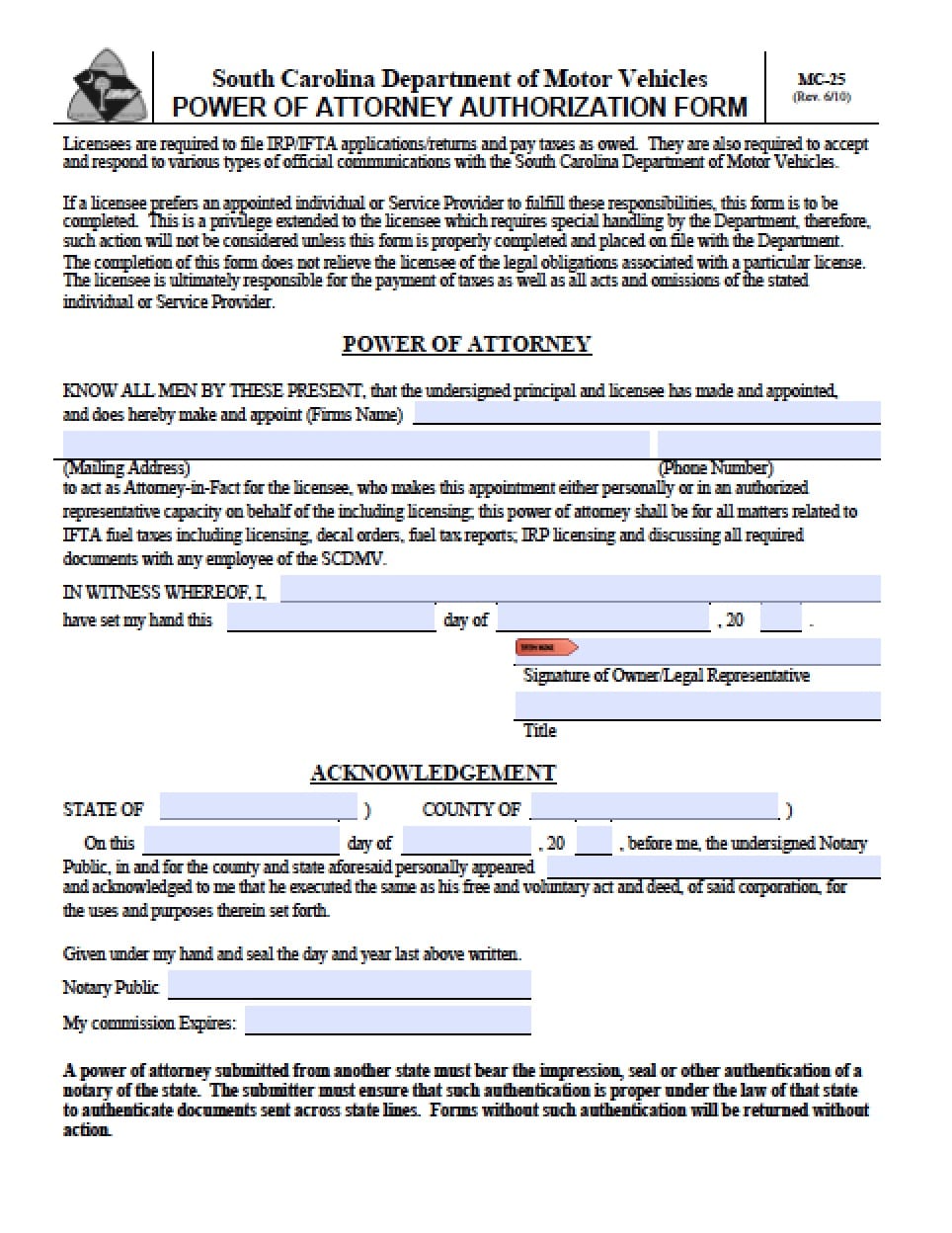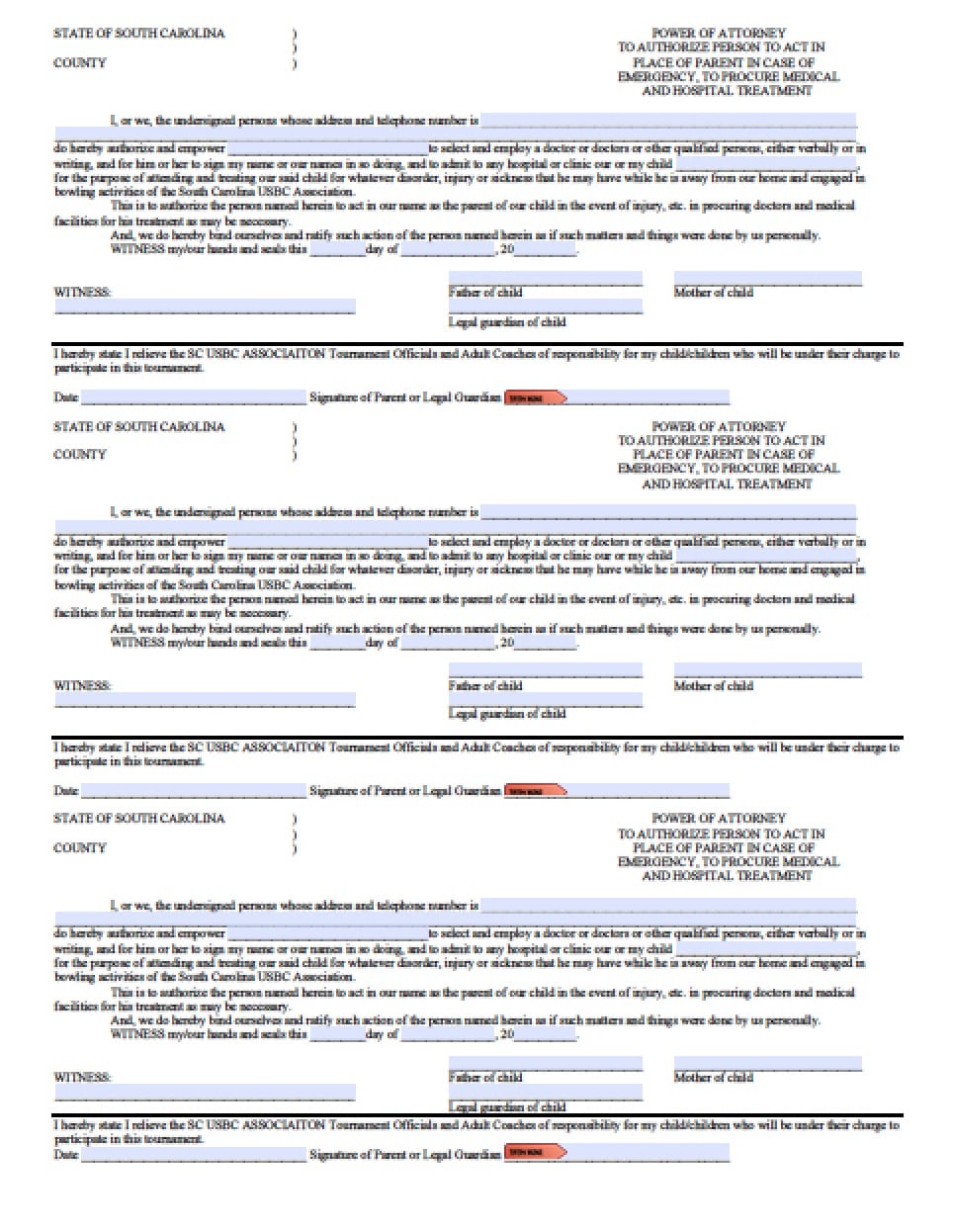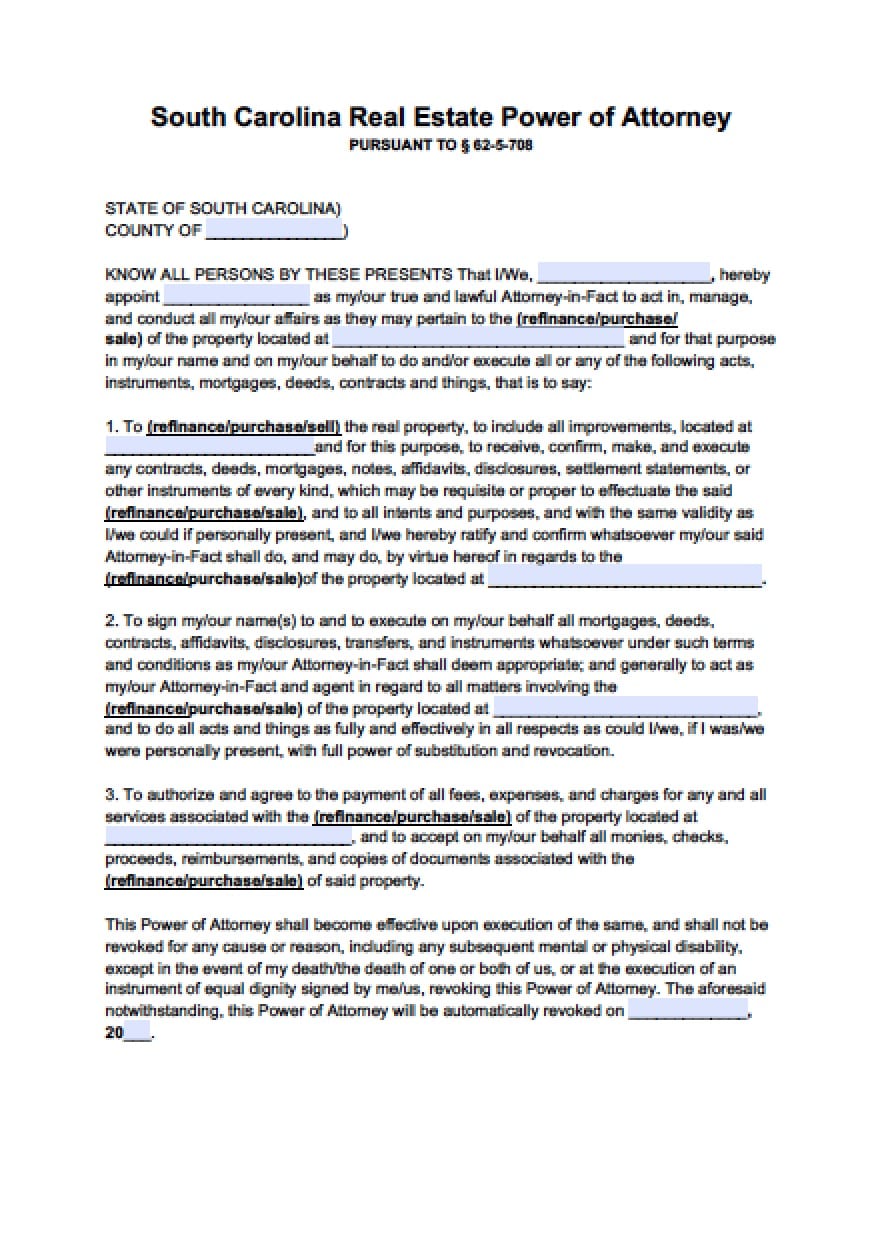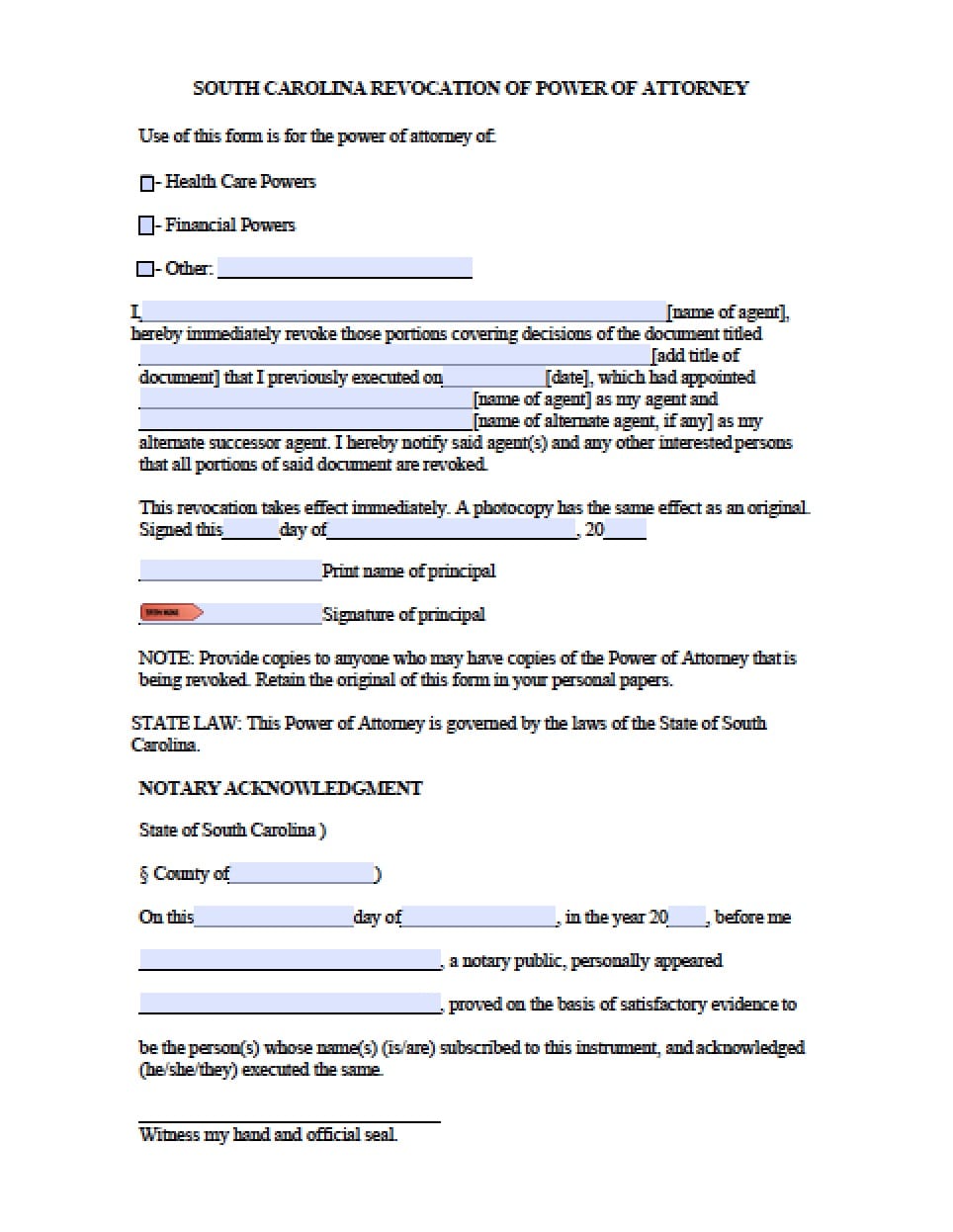 | South Carolina General Financial Power of Attorney Form |
The South Carolina general financial power of attorney form is a document that will allow a Principal to grant powers to an Agent so that the Agent may act on behalf of the Principal to perform specified powers stated by the Principal. The powers will begin upon the completion and signing of this document and shall remain in effect even if the Principal becomes disabled or incapacitated. This document should be reviewed carefully by the Principal, before completion, If the Principal is not certain that they completely understand all sections contained within this document, they may choose to consult with an attorney for guidance.
This document must be signed before a notary and two witnesses. This document may be revoked at any time by the Principal, in writing, and by delivery or service to the Agent, by the Principal
How to Write
Step 1 – Download the Document – Principal should review the following:
- Notice
- Incapacitation
- Revocation
- Witness and Notary
Step 2 – The Parties – Provide:
- Name of the Principal
- Street Address
- City
- State
- AND
- Name of the Agent
- Street Address
- City
- State
- Enter the state whereas the powers document shall be utilized by the Agent
- AND
- Name of the Successor Agent (optional)
- Street Address
- City
- State
- Provide the state where the powers document shall be used by the Agent
- The Principal must carefully read the Terms and Conditions
Step 3 – Principal’s Granting of Powers – The Principal must read and consider all of the powers provided. If the Principal should choose to grant any specific power, enter their initials, if they decide not to provide power to any of the power,then place an “X” in the preceding line– Review the following powers:
- (A) Real property transactions
- (B) Tangible personal property transactions
- (C) Stock and bond transactions
- (D) Commodity and option transactions
- (E) Banking and other financial institution transactions
- (F) Business operating transactions
- (G) Insurance and annuity transactions
- (H) Estate, trust, and other beneficiary transactions
- (I) Claims and litigation
- (J) Personal and family maintenance
- (K) Benefits from Social Security, Medicare, Medicaid, or other governmental programs, or military service
- (L) Retirement plan transactions
- (M) Tax matters
Step 4 – Additional Titles – The Principal must review the following:
- Third Parties
- Compensation
- Disclosure
Step 5 – Signatures – Notary Public services required:
- Printed name of the Principal
- Date the signature in dd/mm format
- The Principal’s Signature
- AND
- The printed name of the Agent
- The Agent’s Signature
- Date the signature in mm/dd/yyyy format
- AND
- Submit the printed name of the Successor Agent (optional)
- The Successor Agent’s signature
- Date the Successor’s signature in mm/dd/yyyy format
Step 6 – Notary Acknowledgement –
When the notary witnesses all signatures, the notary shall then have the ability to legally acknowledge the document by entering all of the information required to acknowledge the document
Step 7 – Acknowledgement and Acceptance of Appointment as Agent and Successor Agent –
- Each Agent must read their acceptance information, if they agree:
- Enter the name of the Agents in their respective paragraphs
- Provide signatures
- Date the signatures in mm/dd/yyyy formats
Step 8 – Witness Attestation – The witnesses must read the attestation paragraph and enter:
- Witnesses must enter their printed names
- Each witness shall provide their signatures
